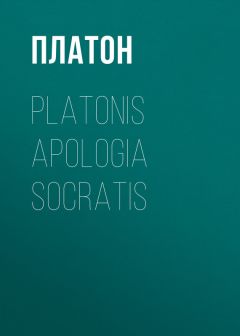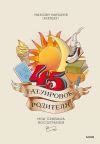Текст книги "Platonis Apologia Socratis"

Автор книги: Платон
Жанр: Философия, Наука и Образование
Возрастные ограничения: +12
сообщить о неприемлемом содержимом
Текущая страница: 1 (всего у книги 1 страниц)
Plato
Platonis Apologia Socratis
THE APOLOGY
Socrates' death took place in the month of May, 399 B.C., when he was more than 70 years of age (Apol. 17 D. Crito 52 E). The interval between the trial and his death was very long, – thirty days altogether. The indictment against Socrates was as follows: "Socrates is guilty of crime, first for not worshipping the gods whom the city worships, but introducing new divinities of his own; next, for corrupting the youth. The penalty due is death."
The accusers of Socr. were three: Meletus, Anytus, and Lyco: see espec. Apol. 23 E. Meletus is also mentioned by Plato in the Euthyphro 2 BC as ἀνὴρ νέος καὶ ἀγνὼς, τετανόθριξ καὶ οὐ πάνυ εὐγένειος, ἐπίγρυπος δέ,11
"SOCRATES: A young man who is little known, Euthyphro; and I hardly know him: his name is Meletus, and he is of the deme of Pitthis. Perhaps you may remember his appearance; he has a beak, and long straight hair, and a beard which is ill grown." (Project Gutenberg-text 1642)
[Закрыть] and in the Apology also Socr. speaks of him as an insignificant young man. Meletus, however, presented the indictment which was hung up in the portico before the office of the ἄρχων βασιλεύς (hence περὶ τὴν τοῦ βασιλέως στοάν Euth. 2 A).22
"EUTHYPHRO: Why have you left the Lyceum, Socrates? and what are you doing in the Porch of the King Archon? Surely you cannot be concerned in a suit before the King, like myself?" (Project Gutenberg-text 1642)
[Закрыть] According to the Schol. on Apol. 18, Meletus was τραγῳδίας φαῦλος ποιητής,33
"a bad tragic poet".
[Закрыть] a statement also made by the Schol. on Aristoph. Frogs 1302: but it seems certain that we have here an error on the part of the Scholiasts who were led by Plato's words ὑπὲρ τῶν ποιητῶν ἀχθόμενος to identify the accuser of Socr. with the poet mentioned by Aristophanes l. c., where he says that Euripides borrowed a good deal of his poetry, – though this identification is absolutely impossible on account of the difference of time, as the Meletus mentioned by Aristoph. could not have been a young man in 399, even supposing that he was still alive. We know nothing more about Meletus, the accuser of Socr., from other sources, but it is possible that he was the son of the Meletus mentioned by Arist., in which case we should also gain an explanation of the motive which Plato assigns for his share in the indictment of Socr.
The most influential of the trio was Anytus, a rich βυρσοδέψης, i.e. a leather-seller, who is said to have been more especially incensed against Socr. by the presumption with which the philosopher had ventured to dissuade him from bringing up his son to his own trade, as the young man had manifested much interest in philosophical speculation and conversation. No doubt Anytus hated Socr. above all as a "corrupter of youth." Anytus was rich, but had been exiled under the Thirty, and, like so many other patriotic citizens, suffered great loss of property. He had then taken a prominent part in the expulsion of the Thirty, and was at the time of the trial of Socr. one of the leading men in Athens.44
See Frohberger's note on Lysias, Vol. I. p. 160.
[Закрыть] Socrates' interference in his plans with respect to his son may have been all the more galling to him, as his previous losses must have made him anxious that his son also should contribute his share towards the restoration of the family fortunes. Anytus must have classed Socr. with the Sophists, and his opinion of them may be gathered from Plato, Meno 91 B, where Socr. says, οἶσθα δήπου καὶ σὺ ὅτι οὗτοι εἰσὶν οἵους οἱ ἄνθρωποι καλοῦσι σοφιστάς, and Anytus answers, Ἡράκλεις, εὐφήμει, ὦ Σώκρατες· μηδένα τῶν συγγενῶν μήτε οἰκείων μήτε φίλων μήτε ἀστῶν μήτε ξένων, τοιαύτη μανία λάβοι ὥστε παρὰ τούτους ἐλθόντα λωβηθῆναι, ἐπεὶ οὗτοί γε φανερά ἐστι λώβη τε καὶ διαφθορὰ τῶν συγγιγνομένων.55
Meno 91 B: "SOCRATES: You surely know, do you not, Anytus, that these are the people whom mankind call Sophists?
ANYTUS: By Heracles, Socrates, forbear! I only hope that no friend or kinsman or acquaintance of mine, whether citizen or stranger, will ever be so mad as to allow himself to be corrupted by them; for they are a manifest pest and corrupting influence to those who have to do with them." (Project Gutenberg-text 1643)
[Закрыть]
But besides this personal motive, Anytus no doubt bore also a political grudge to Socr. Anytus was, it has been seen, a republican, and, as he had suffered for his cause, he was no doubt a radical. Now Socr. did not abstain from criticising the laws and government of Athens with the greatest candor, and even so far as to admire the Spartan and Cretan institutions: see esp. Crito 52 E. 53 B. It is quite certain that, to a great extent, Socr. was blamed by the democrats for the misdeeds of Critias, who (as they said) had been his pupil, and, at all events, had been much in the society of Socr. when a young man, – Xenophon says in order to acquire an argumentative facility which might be serviceable to his political ambition. But Critias had been the chief author of all the cruelties and spoliation perpetrated by the Thirty, and the fact is that Socr. shared the odium which attached to the name of Critias. In another of his "pupils" (I keep this appellation, though Socr. himself would reject it) Socr. had been singularly unfortunate, viz., in Alcibiades, whose rashness had done much to accomplish the great downfall which resulted to Athens from the Peloponnesian war.
Considering all these circumstances (which we can here only slightly touch upon, though they could scarcely be exhausted in a copious treatise) it is not surprising to learn from Xenophon (Mem. 1, 2, 9) that it was the general belief in Athens that Socr. "excited the young men to despise the established constitution, and to become lawless and violent in their conduct."
The displeasure which Meletus felt against Socr. in the interest of the poets may be easily accounted for when we read the corresponding passage in the Apology, and recollect the fact that Socr. is said to have been fond of citing the worst passages of great poets in confirmation of theories particularly disagreeable to the taste of an Athenian, e.g. inferring from some lines of the second book of the Iliad that Homer praised the application of stripes to poor men and the common people (Xen. Mem. 1, 2, 56–59).
As for Lyco, the third accuser of Socr., we know about him perhaps even less than about Meletus. Diogenes Laërt. (2, 38) says that he was a demagogue, and from Plato we learn that he was a ῥήτωρ66
"a public speaker, pleader", Latin "orator" (Liddell and Scott, "An Intermediate Greek-English Lexikon. Oxford. Clarendon Press. 1889).
[Закрыть]– of what kind may be gathered from our note on Apol. 23 E.77
Wagner, p. 85: "Cf. also Gellius 3, 13, Callistratus Athenis orator in re publica fuit quos illi δημαγωγοὺς appellant. Lyco belonged
...
конец ознакомительного фрагмента
Внимание! Это не конец книги.
Если начало книги вам понравилось, то полную версию можно приобрести у нашего партнёра - распространителя легального контента. Поддержите автора!Правообладателям!
Данное произведение размещено по согласованию с ООО "ЛитРес" (20% исходного текста). Если размещение книги нарушает чьи-либо права, то сообщите об этом.Читателям!
Оплатили, но не знаете что делать дальше?





























